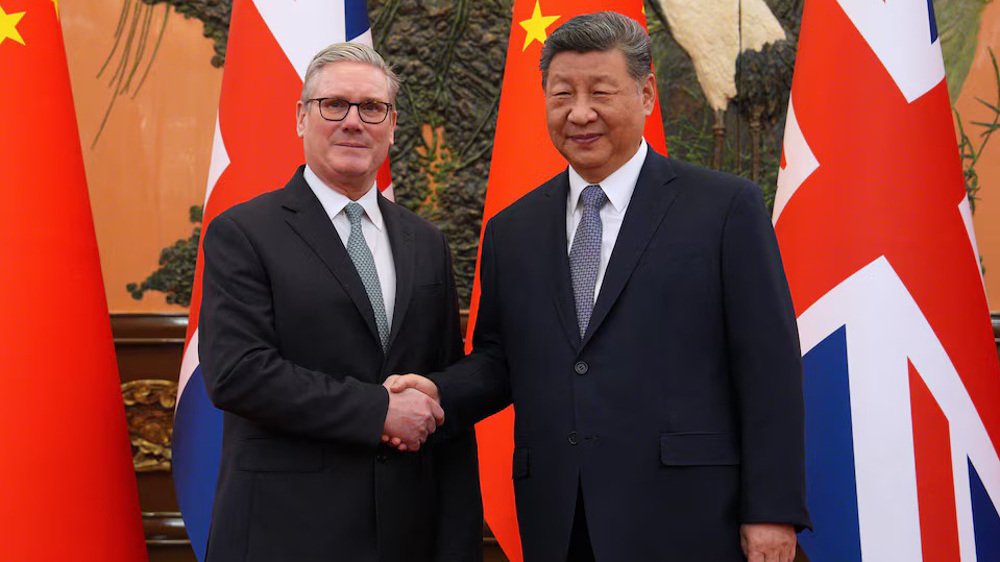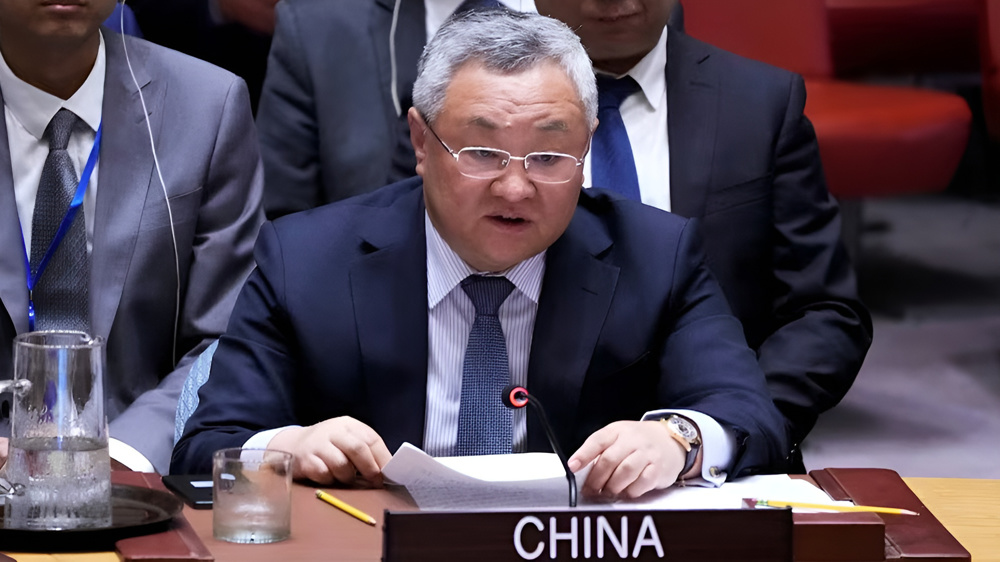China ‘strongly dissatisfied’ with G7 statement
A senior Chinese official says his country is “strongly dissatisfied” with the mention of ongoing disputes in regards to the South and East China Seas in the final communiqué of the recent G7 summit in Italy.
Chinese Foreign Ministry spokesman Lu Kang made the remark in a statement published on Sunday after the G7 countries expressed concern over territorial disputes and rising maritime tensions in the East and South China Seas.
In their final statement, the seven wealthy nations, in a gathering on the Italian island of Sicily, expressed their opposition toward “any unilateral actions that could increase tensions,” and urged all parties to the conflict to start the demilitarization process.
Kang said, “We noticed this situation. We express strong protest in relation to the G7 summit’s communiqué, where the issue of South China and East China Seas was discussed under the pretext of the international law.”
Lu said that Beijing was committed to properly resolving disputes with all the nations involved through negotiations while maintaining peace and stability in the two seas.
The Chinese Foreign Ministry spokesman added that Beijing hoped the G7 countries and other nations would refrain from making “irresponsible” remarks and would fully respect the efforts of countries in the region to handle territorial disputes.

China is involved in a dispute with Japan over a group of uninhabited islets in the East China Sea. China is also locked in maritime disputes in the South China Sea, where several countries, including Vietnam, Taiwan, Brunei, Malaysia, and the Philippines, have overlapping claims.
A Hague-based court of arbitration last year ruled in a case brought by the Philippines that China’s claims to sovereignty over the disputed areas in the South China Sea were invalid. Beijing rejected the ruling and stressed that it does not recognize the jurisdiction of the court.
Meanwhile, the United States is critical of China’s construction of islands and the build-up of military facilities in the South China Sea and has sent several of its warships there to protect what it calls its right to “freedom of navigation.” But Beijing accuses Washington of interfering in regional issues and deliberately stirring up tensions in a region it does not belong to.
Earlier this week, a US navy warship carried out a drill near a reef in the disputed Spratly Islands, the first such maneuver under President Donald Trump.
Russia warns foreign intervention in Ukraine will be treated as "direct threat"
MSF chief warns Israeli ban on Gaza operations will be 'catastrophic' for millions
‘No illegal demands’: Shamkhani says US talks may bear fruit if respect, logic shown
VIDEO | Iran prepared for both scenarios: Talks or self-defense
Russia slams ‘unacceptable’ US pressure on Cuba as Trump seeks oil cutoff
Epstein advised ex-Israeli PM Ehud Barak to cooperate with US AI firm Palantir
Iran, US to hold nuclear talks in Istanbul: Report
Israeli strikes kill at least one, injure several people in south Lebanon










 This makes it easy to access the Press TV website
This makes it easy to access the Press TV website